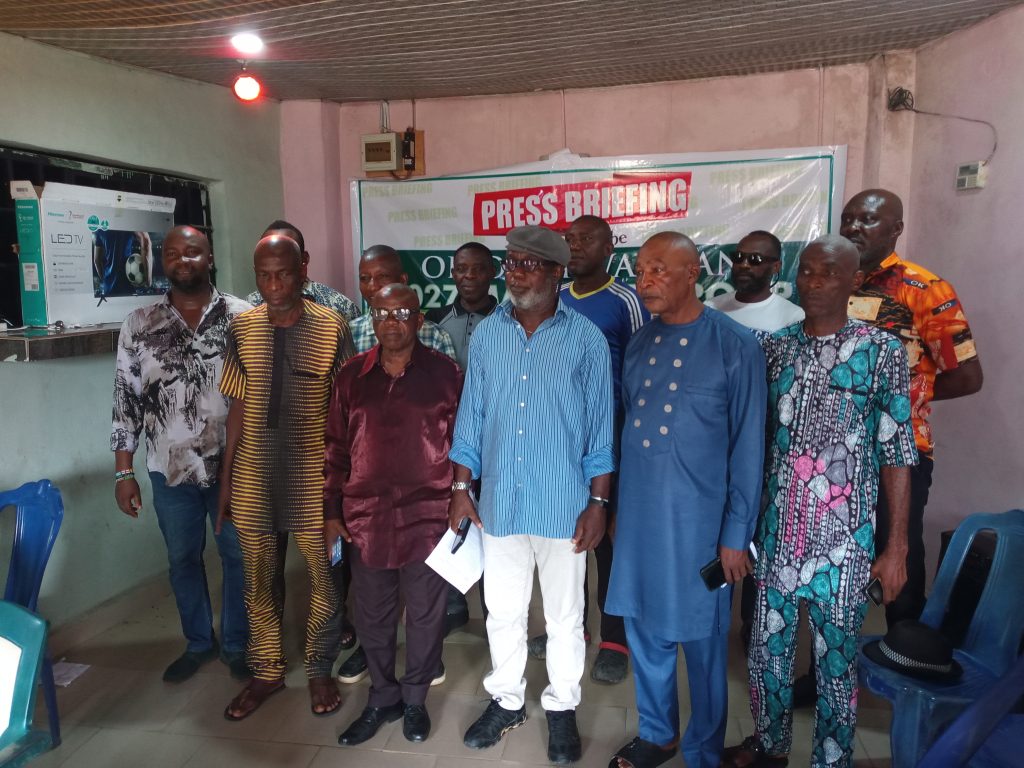News
Thugs murder Bayelsa varsity student for failing to pay N150 levy

Police operatives are in hot pursuit of thugs in Amassoma, a community in the Southern Ijaw Local Government Area of Bayelsa State, following the death of a final-year student, Francis Palowei, from the Niger Delta University, on July 15, 2024.
The incident ignited a wave of outrage within the community, prompting widespread discussions and calls for action.
Punch reported that late Palowei was at Sand Dump, a popular relaxation spot for students, when he was stabbed to death by street thugs.
The attack allegedly occurred because he failed to pay a N150 levy demanded by them.
Palowei, a native of Obrigbene community in Ekeremor local government area of Bayelsa State, was set to graduate on Wednesday, July 24 2024.
The university had scheduled its next convocation ceremony for that day.
What did the police do?
The police force has deployed men to go into the community to find and arrest the offenders.
However, some angry students of the institution have also joined in the search for the offenders.
While some students participated in the search efforts, others remain in shock and have chosen to skip classes.
The Public Relations Officer of Niger Delta University, Indoni Engezi, confirmed the incident.
Engezi assured that the incident did not disrupt academic activities, emphasising that the university functions as a separate community.
He clarified that the issue primarily impacted the host community of Amassoma and noted that the police were actively handling the situation.
Meanwhile, the Bayelsa State Police Command spokesperson, Musa Mohammed, has confirmed the development.
He stated that Commissioner of Police, Francis Idu, had deployed additional police personnel to the community to ensure peace.
The Commissioner also initiated a search for the perpetrators.
Activities of street thugs
Thugs or street thugs, also known as agberos, are loosely organised gangs of street teenagers and adult males.
They are typically found in urban areas and are known to operate within specific neighborhoods or localities, hence the term “street thugs.”
They often engage in various forms of street-level activities.
These activities cover a range of roles, including providing informal security services, street vending, and working as bus conductors.
They also engage in petty crime, extortion, and occasionally more severe criminal activities.
Their presence and activities can sometimes pose challenges to law enforcement and urban governance in Nigerian cities.
Here are some key points about street thugs:
Extortion and Intimidation: Street thugs often levy tolls on bus drivers, demand bribes from market vendors, and patrol car-parking spaces, demanding illegal fees.
They even threaten ordinary passersby, demanding “donations.”
Their tactics are usually forceful and intimidating.
Root Causes: The emergence of street thugs is linked to socio-economic deprivation.
Many of them face poverty, lack of education, and limited opportunities.
Therefore, desperation drives them to engage in criminal activities.
Drug Addiction: Some street thugs struggle with drug addiction, which further fuels their aggression and violent behaviour.
Complex Dynamics: While some may show compassion or restraint, others resort to violence.
Their actions range from petty crimes to sometimes-violent offenses.
In summary, the behaviour of area boys varies.
Some are violent, while others may not be.
However, their presence poses challenges for the community, and efforts to address their root causes are crucial
Police’s approach to area boys
The role of the police in dealing with street thugs can vary significantly, depending on the context and location.
Here are a few perspectives:
Interaction between the police and street thugs:
In Nigeria, especially in cities like Lagos, street thugs frequently engage in street-level criminal activities and various forms of hustling.
They operate in public spaces, sometimes engaging in extortion, violence, and other disruptive behavior.
The police play a critical role in maintaining order and enforcing the law.
They may attempt to clear areas of undesirables, including street thugs, especially during events or situations where public safety is a concern.
However, interactions between the police and street thugs can be complex.
Some police officers may engage in corrupt practices, accepting bribes from area boys or turning a blind eye to their activities.
In contrast, others may take a more aggressive approach, leading to clashes and confrontations.
Challenges and Criticisms:
Critics argue that the police sometimes exacerbate the situation by using excessive force or treating street thugs unfairly.
This can lead to a cycle of resentment and mistrust.
Additionally, poverty, unemployment, and lack of opportunities contribute to the rise of street thugs.
Some view them as victims of systemic issues rather than solely as criminals.
Documentary Perspective:
The documentary “Awon Boyz” sheds light on the lives of street thugs in Lagos.
It explores their struggles, interactions with law enforcement, and the broader socio-economic context.
The police feature prominently in this narrative, both as enforcers of the law and as actors in the complex ecosystem of street life.
The role of the police in dealing with area boys involves maintaining order, addressing criminal behavior, and ensuring public safety.
However, the effectiveness of their actions and the impact on street thugs’ lives can vary widely.
For Diaspora Digital Media Updates click on Whatsapp, or Telegram. For eyewitness accounts/ reports/ articles, write to: citizenreports@diasporadigitalmedia.com. Follow us on X (Fomerly Twitter) or Facebook











